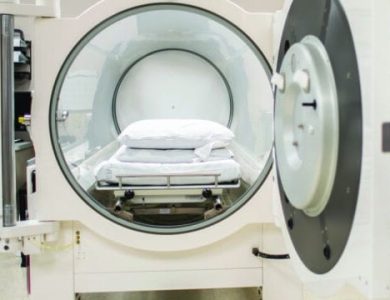Deciphering Your Gut Health: The Role and Impact of Gut Biome TestingIntroduction:

The human gut, often referred to as the “second brain,” is home to a vast ecosystem of microorganisms collectively known as the gut microbiome. This intricate community of bacteria, viruses, fungi, and other microbes plays a crucial role in digestion, nutrient absorption, immune function, and overall health. With growing recognition of the gut microbiome’s significance, gut biome testing has emerged as a valuable tool for understanding and optimizing gut health. In this comprehensive article, we will explore the concept of gut biome testing, its methodologies, significance, and implications for personalized health management.
Understanding Gut Biome Testing:
Gut biome testing, also known as gut microbiome analysis or gut microbial profiling, involves the examination of microbial communities residing within the gastrointestinal tract. This process typically entails the collection of stool samples, which are then subjected to various analytical techniques to assess microbial composition, diversity, and functionality. By providing insights into the complex interplay between gut microbes and human health, gut biome testing offers a window into the inner workings of the digestive system.
Significance of Gut Biome Testing:
The significance of gut biome testing lies in its ability to uncover the intricate relationship between gut microbes and host physiology. Research has linked alterations in the gut microbiome to a wide range of health conditions, including gastrointestinal disorders, metabolic diseases, autoimmune conditions, and even neurological disorders. By elucidating individual microbial profiles, gut biome testing can identify microbial imbalances or dysbiosis, offering valuable insights into underlying health issues and potential therapeutic interventions.
Methods and Techniques in Gut Biome Testing:
Gut biome testing employs a variety of methodologies to analyze microbial communities within the gut. Some common approaches include:
- DNA Sequencing: DNA sequencing techniques, such as 16S rRNA sequencing and shotgun metagenomic sequencing, are commonly used in gut biome testing. 16S rRNA sequencing targets specific regions of bacterial DNA, allowing for the identification and quantification of bacterial taxa present in the sample. Shotgun metagenomic sequencing provides a more comprehensive analysis of all genetic material present in the sample, enabling researchers to identify bacteria, viruses, fungi, and other microorganisms. These techniques provide valuable information about microbial diversity, composition, and potential functional pathways within the gut microbiome.
- Metabolomics: Metabolomic analysis focuses on the metabolic products, or metabolites, produced by gut microbial communities. By measuring metabolite profiles in stool samples, metabolomics provides insights into microbial activity, metabolic pathways, and their impact on host physiology. Metabolomic profiling can reveal biomarkers associated with specific health conditions, offering diagnostic and prognostic value in gut biome testing.
- Functional Assays: Functional assays assess the functional capacity of gut microbial communities, including their ability to metabolize substrates, produce bioactive compounds, and modulate host immune responses. These assays provide insights into the functional potential of the gut microbiome and its role in health and disease. Functional testing may include measurements of enzyme activity, fermentation profiles, and immune modulation assays, among others.
Interpreting Gut Biome Test Results:
Interpreting gut biome test results requires careful consideration of microbial composition, diversity, and functional potential. Key factors to consider include:
- Microbial Diversity: Microbial diversity is a key indicator of a healthy gut microbiome, reflecting the richness and evenness of microbial communities. High microbial diversity is associated with better health outcomes, whereas reduced diversity may indicate dysbiosis and increased susceptibility to disease.
- Relative Abundance of Microbial Taxa: Gut biome testing provides insights into the relative abundance of different microbial taxa within the sample. Certain microbial taxa may be associated with specific health conditions or dietary patterns, providing clues to underlying physiological processes and potential therapeutic interventions.
- Functional Potential: Assessing the functional potential of the gut microbiome reveals insights into its metabolic capabilities, including nutrient metabolism, energy production, and synthesis of bioactive compounds. Functional testing can identify metabolic pathways associated with health or disease, guiding targeted interventions to modulate microbial function.
Implications for Personalized Health Management:
Armed with insights from gut biome testing, individuals can take proactive steps to optimize their gut health and overall well-being. Strategies may include:
- Dietary Modifications: Adjusting dietary habits to promote a healthy gut microbiome, such as increasing fiber intake, consuming probiotic-rich foods, and avoiding processed foods and artificial additives that may disrupt microbial balance.
- Probiotic and Prebiotic Supplementation: Introducing beneficial microbes through probiotic supplements and providing prebiotic substrates to nourish beneficial bacteria can support microbial diversity and function.
- Lifestyle Interventions: Implementing lifestyle changes, including stress management techniques, regular physical activity, and adequate sleep, can positively influence the composition and activity of the gut microbiome.
- Targeted Therapies: For individuals with specific health concerns or imbalances identified through gut biome testing, targeted interventions may include antimicrobial treatments, dietary supplements, or microbiome-targeted therapies designed to restore microbial equilibrium.
Conclusion:
Gut biome testing represents a powerful tool for unraveling the mysteries of the gut microbiome and its impact on human health. By providing insights into microbial composition, diversity, and functionality, gut biome testing offers personalized approaches to gut health management and overall well-being. As our understanding of the gut microbiome continues to evolve, gut biome test holds the promise of revolutionizing healthcare paradigms, ushering in an era of precision medicine tailored to the individual microbial profile.




